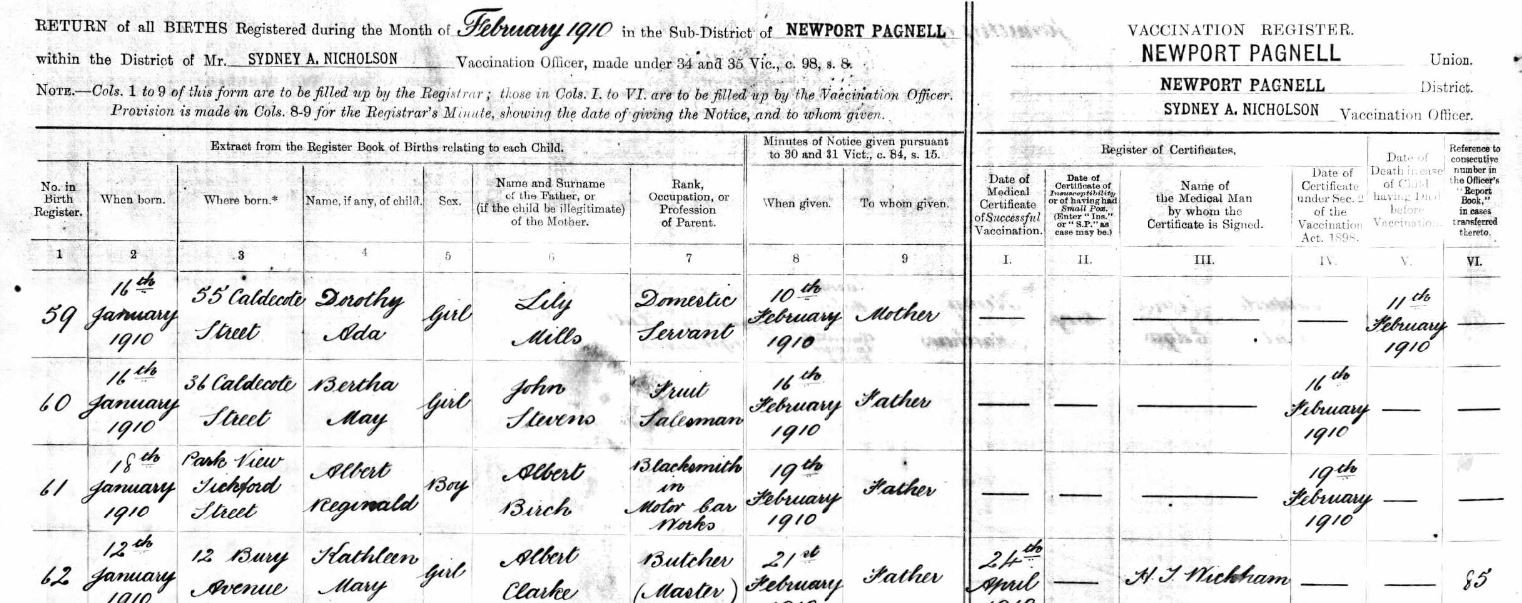Some records do exist, although what I found is much later than the introduction of the Act in 1853.
The National Archives catalog has General Register Office: Smallpox Vaccination Returns as part of RG 56. However, the catalog description says:
This series contains smallpox vacination returns for the years
1898-1921 and 1938-1941. These smallpox returns contain statistical
information not likely to be found in any such detail elsewhere.
These registers do not contain personal information.
Looking at the individual sub-series, many of the descriptions are marked
This record has not been digitised and cannot be downloaded.
The records are listed as open access, but you have to get a reader's ticket to view them, or ask for a quote to get copies made and sent to you.
I searched within this group for Nottingham and Nottinghamshire and got no results. However, one group of 1941 records (RG 56/24) is labeled "Norfolk to Yorkshire" so it isn't safe to assume the name of the locality you seek will be in the catalog description.
It might be worthwhile to inquire at TNA to ask what they mean when they say "The registers do not contain personal information." I've seen similar cautions about electoral registers (e.g. in the British Library's research guides), but if the researcher understands the original records, they can still be quite useful for family history study despite the lack of "personal" information.
One possible source of information about vaccinations might be in the Poor Law Union records. Find My Past has transcriptions by the Devon Family History Society which are said to be extracts from the "Brixham Vaccinator Register 1905-1907" held by the Devon Heritage Center under a PLU reference number. This extract had a name, age (2 months), date of vaccination, and residence (the street name and town). Going to the website of the Devon FHS, I found several publications of vaccination register extracts in their store under the category Joint Projects with Devon Record Office.
Check local archives for your research area to see if they might have similar registers in their collections, and if the local family history society has published extracts or transcriptions.
